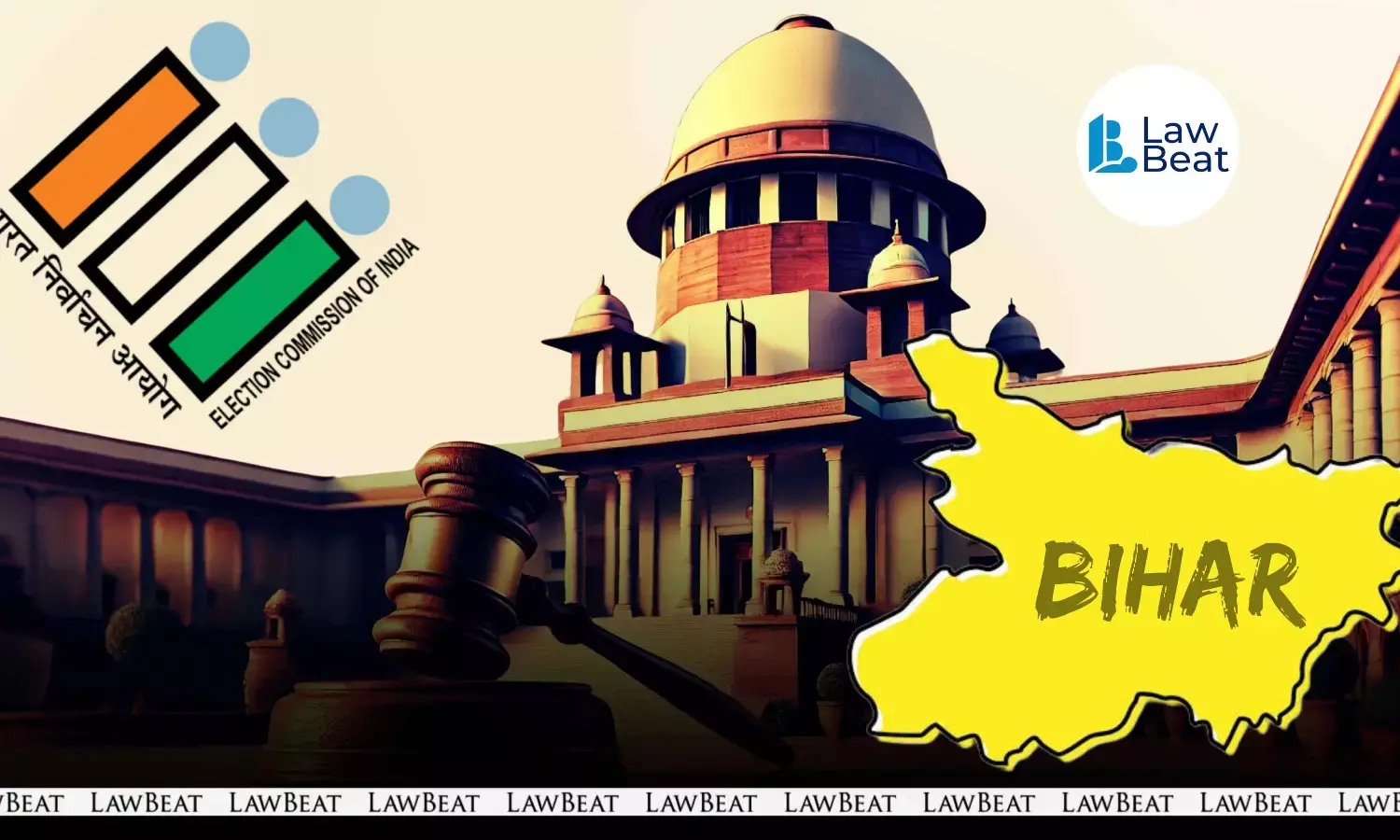Excluding Aadhar, Ration Card makes Bihar SIR patently absurd, ADR tells Supreme Court

Association for Democratic Reforms has now told the Supreme Court of India that Election Commission of India has given no valid reason for exclusion of Aadhar, EPIC and Ration Card from the list of documents which can be submitted during the Special Intensive Revision of Electoral Rolls being carried out in Bihar.
This fresh affidavit has been filed in the batch of petitions challenging the ECI’s June 24, 2025 order mandating a Special Intensive Revision in Bihar ahead of the Assembly elections later this year. Supreme Court is slated to take up the matter for detailed hearing on July 28.
"ECI has reiterated its stand on not including Aadhaar, EPIC and Ration Cards from the list of 11 acceptable documents, citing the reason that these can be obtained through fraudulent or falsified documentation. However, it is pertinent to note that the 11 documents included in the approved list are equally susceptible to being procured on the basis of fake or false documentation, thereby rendering the ECI’s rationale baseless, inconsistent and arbitrary", the rejoinder affidavit filed on behalf of ADR states.
Court has further been told that Aadhar card is one of the documents accepted for obtaining Permanent Residence Certificate, OBC/SC/ST Certificate and for passport which makes ECI’s rejection of Aadhar (which is most widely held document) under the instant SIR order patently absurd.
Relying on media reports from the ground in towns and villages of Bihar, the affidavit submits that they disclose a shocking account of the reality of the SIR process, which is absolutely arbitrary, illegal and in violation of ECI’s own order and guidelines.
Stating that the SIR process shifts the onus of citizenship proof on all existing electors in a state, whose names were registered by the ECI through a due process, ADR has stated, "ECI has provided no data on number of complaints received against inclusion of foreign nationals or illegal migrants in the electoral rolls of Bihar, and rest of the country. In the absence of such evidence, ECI's argument that inclusion in electoral rolls through summary revisions are only provisional and only those added or verified through intensive revisions like SIR have more authenticity cannot be accepted".
Court has been told that SIR order lacks any defined procedure for the examination of enumeration forms or the verification of supporting documents, thereby vesting Electoral Registration Officers (EROs) with broad, unchecked discretion—raising serious concerns about the potential disenfranchisement of a significant segment of Bihar’s population.
"It is submitted that a single ERO is tasked with handling the enumeration forms of over 3 lakh individuals - rendering it humanly impossible for any ERO to apply due diligence or conduct the process in a reasonable manner. This lack of defined procedure enables EROs to act arbitrarily and to exercise their discretion in a manner that is susceptible to misuse and undermines the integrity of the electoral process and democracy which is a fundamental right", the affidavit adds.
Recently, the Election Commission of India (ECI) told the Supreme Court that Aadhaar, Electoral Photo Identity Cards (EPIC), and ration cards cannot be accepted as valid proof of citizenship during the ongoing Special Intensive Revision (SIR) of electoral rolls in Bihar. In a detailed affidavit filed in response to petitions challenging the revision drive, the Commission emphasized that these documents lack legal sanctity for determining citizenship and thus cannot be relied upon to validate voter eligibility.
The affidavit, submitted in a batch of petitions led by NGO Association for Democratic Reforms (ADR), marks a significant legal moment in the debate surrounding the intersection of identity documentation and electoral rights. The petitioners have argued that requiring proof of citizenship risks arbitrary exclusion, discrimination, and potential disenfranchisement of genuine voters. The ECI has countered this by asserting that the revision is constitutionally mandated and vital for cleansing the electoral rolls.
On July 10, the top court allowed the Election Commission of India (ECI) to proceed with its Special Intensive Revision (SIR) of electoral rolls in Bihar but directed that documents like Aadhaar, EPIC voter ID cards, and ration cards should also be considered in the process.
The ECI, however, clarified that Aadhaar cards, while widely used for welfare and identification purposes, are not evidence of Indian citizenship. Referring to the statutory disclaimer attached to every Aadhaar card, the Commission pointed out that Aadhaar is only an identity document and explicitly not a citizenship certificate. Similarly, the Commission argued that EPICs, commonly known as voter ID cards, are generated based on existing entries in the electoral roll and do not serve as independent proof of nationality. Ration cards, often used by the economically weaker sections, have also been excluded due to their vulnerability to fraud and inconsistencies. Accepting these documents, the Commission said, would defeat the purpose of the intensive revision, which seeks to build the electoral roll afresh through on-ground verification rather than depending on legacy documents.
The Commission defended its move to seek supporting documents from electors as a necessary exercise flowing from Article 324 of the Constitution and Sections 16 and 19 of the Representation of the People Act, 1950. These provisions require every voter to be an Indian citizen, above 18 years of age, and an ordinary resident of the constituency. Refuting allegations of arbitrary action or an attempt to strip citizenship, the EC stated that the revision process merely assesses eligibility to vote, not nationality per se. No person is being declared a foreigner or stripped of Indian citizenship through this process, the EC said, adding that the powers to make such declarations lie exclusively with the central government under Section 9 of the Citizenship Act, 1955.
Case Title: Association for Democratic Reforms & Ors vs. Election Commission of India & Anr
